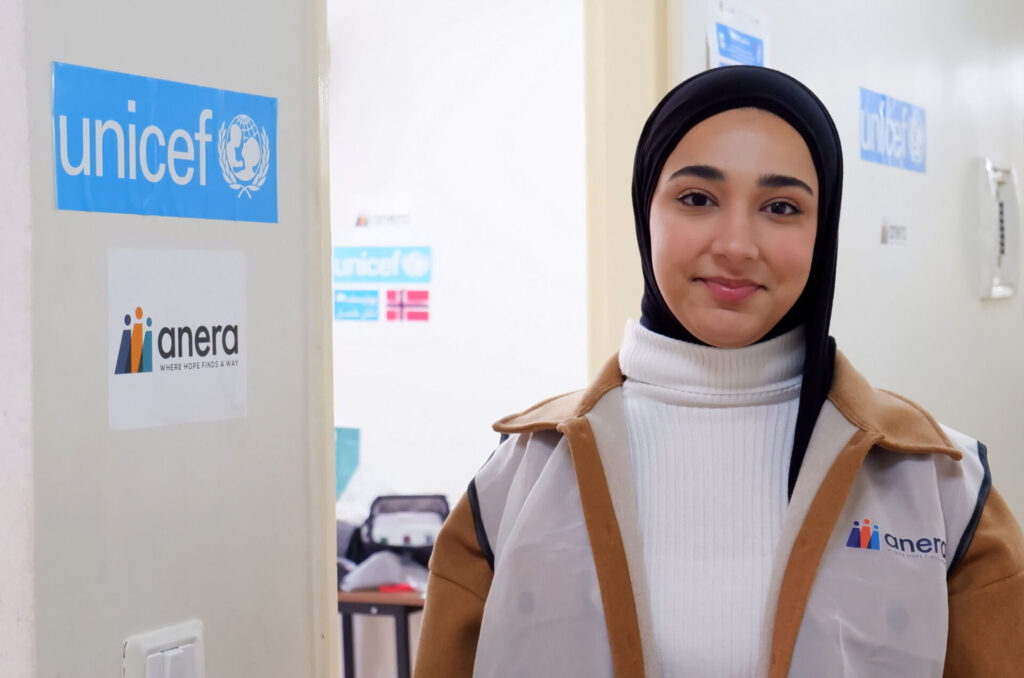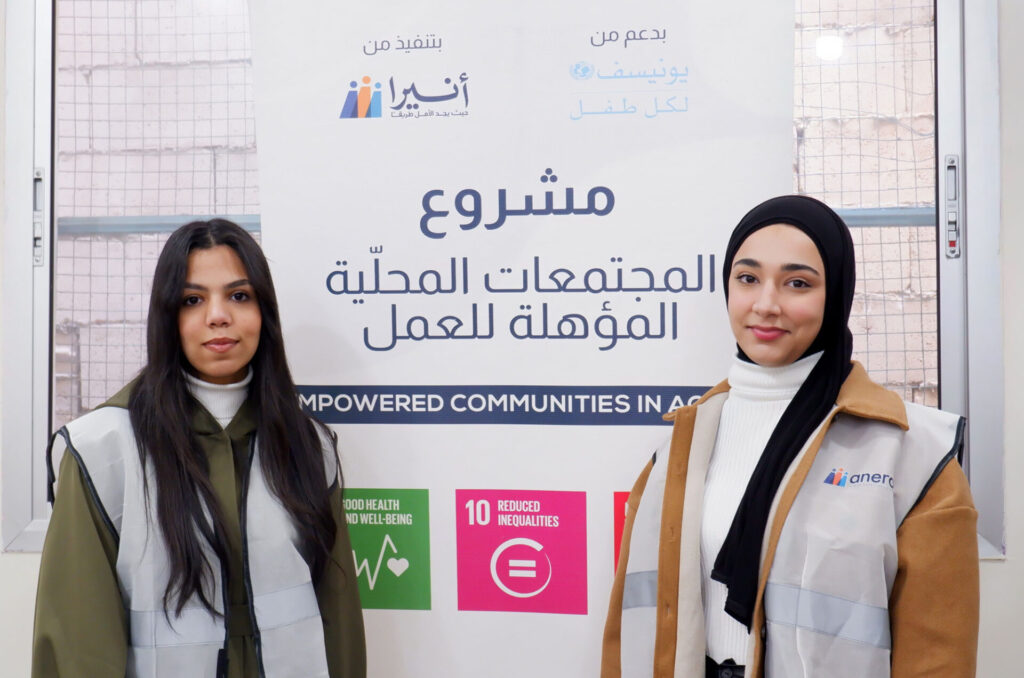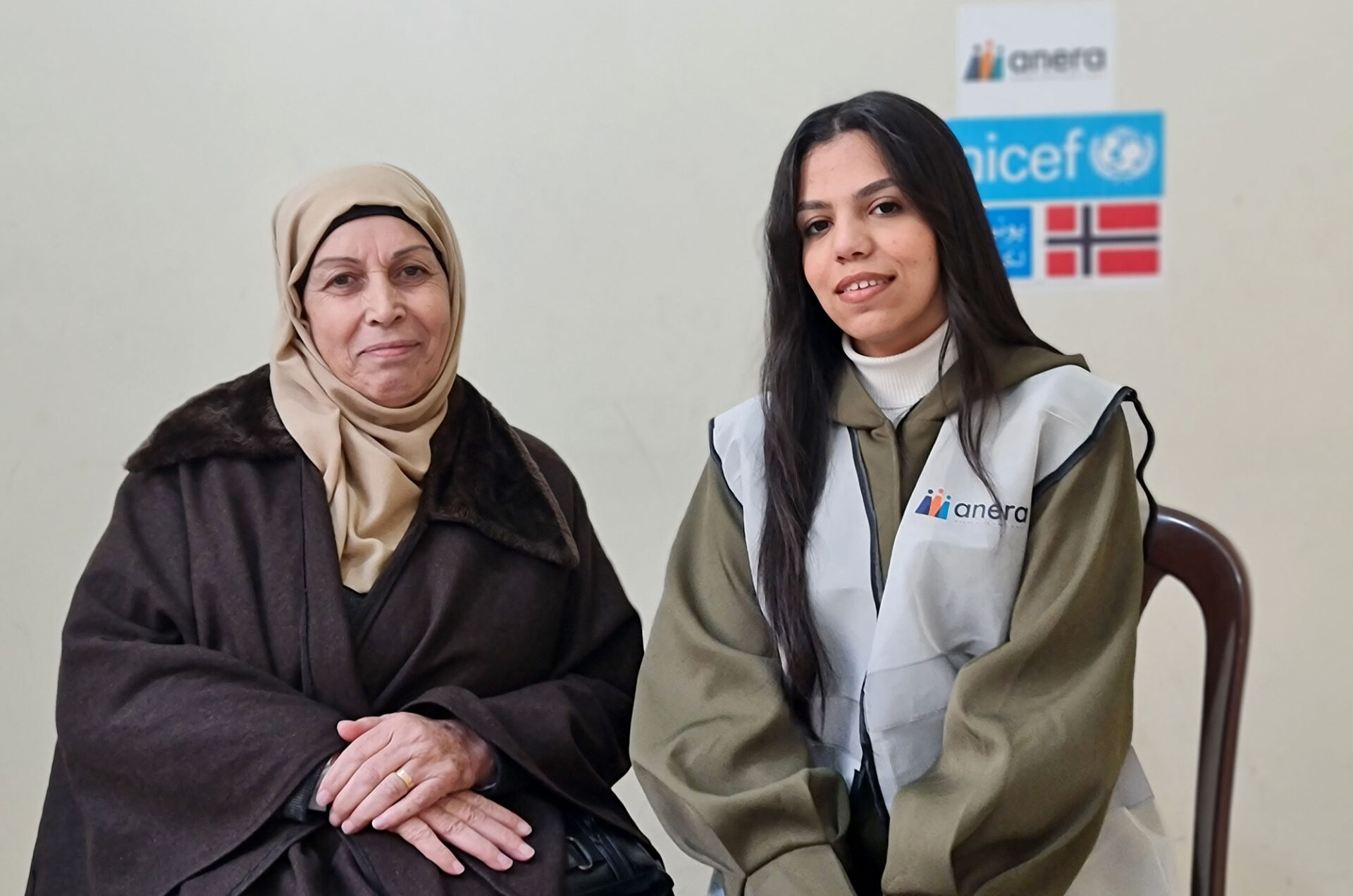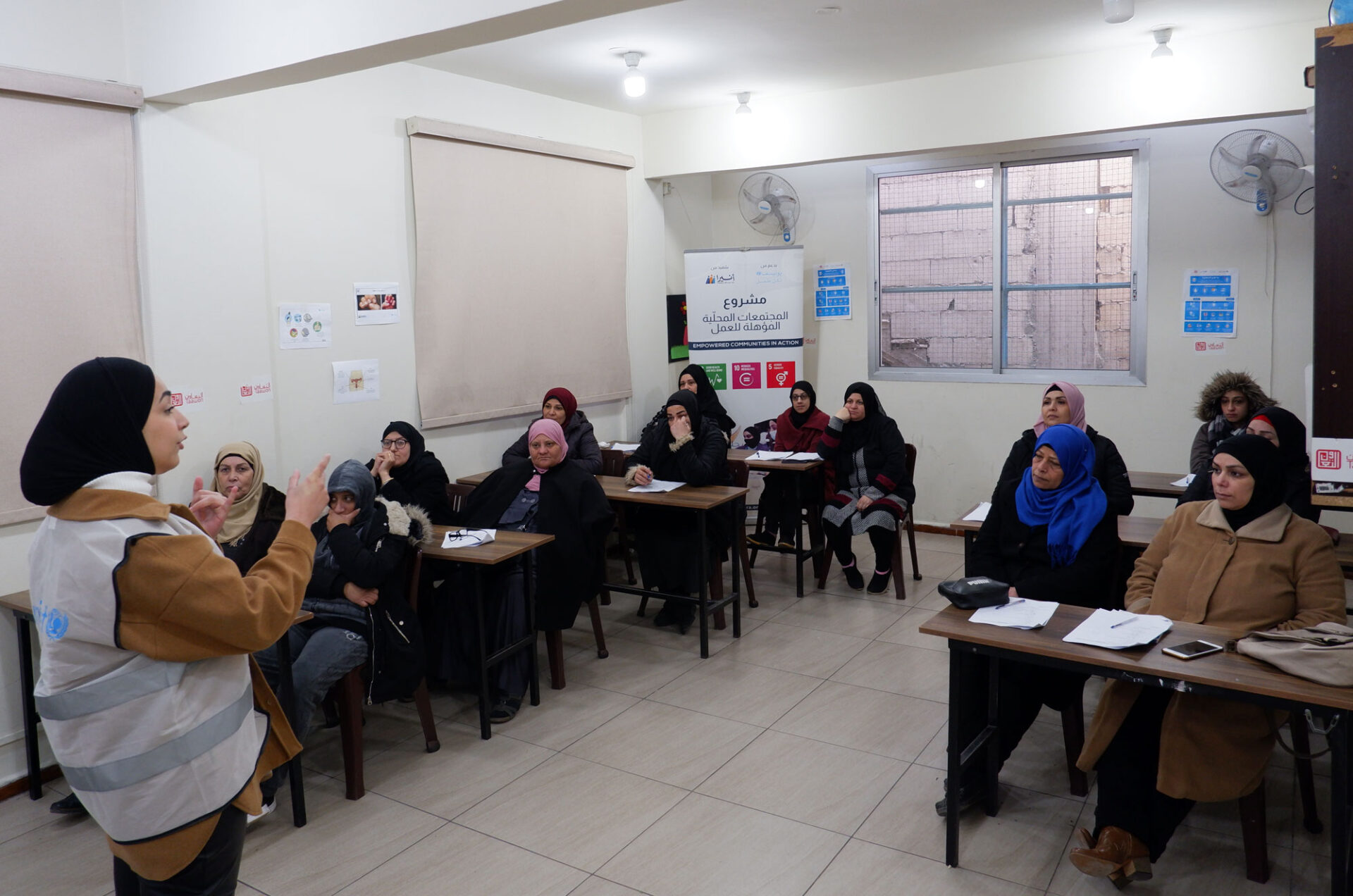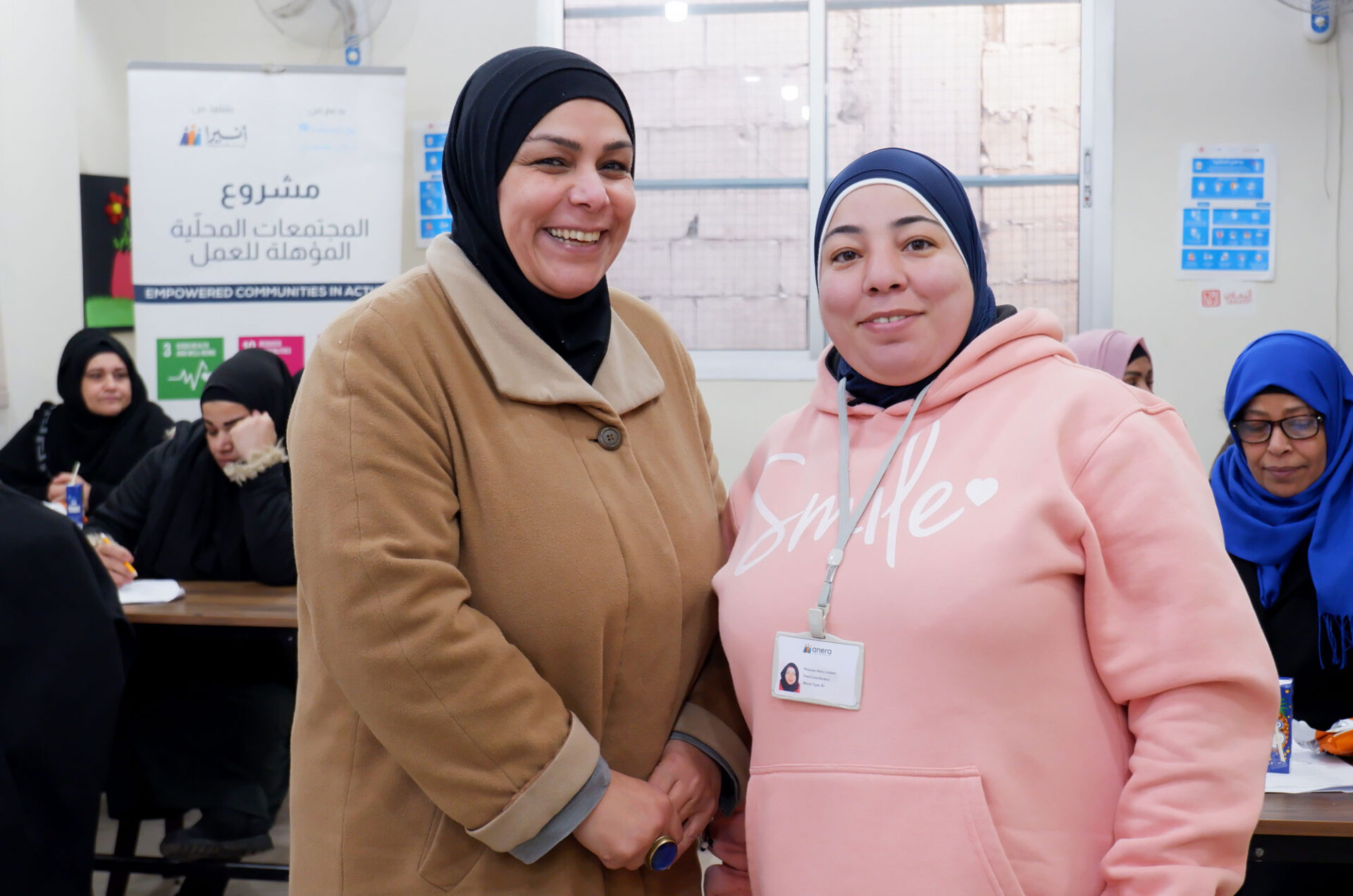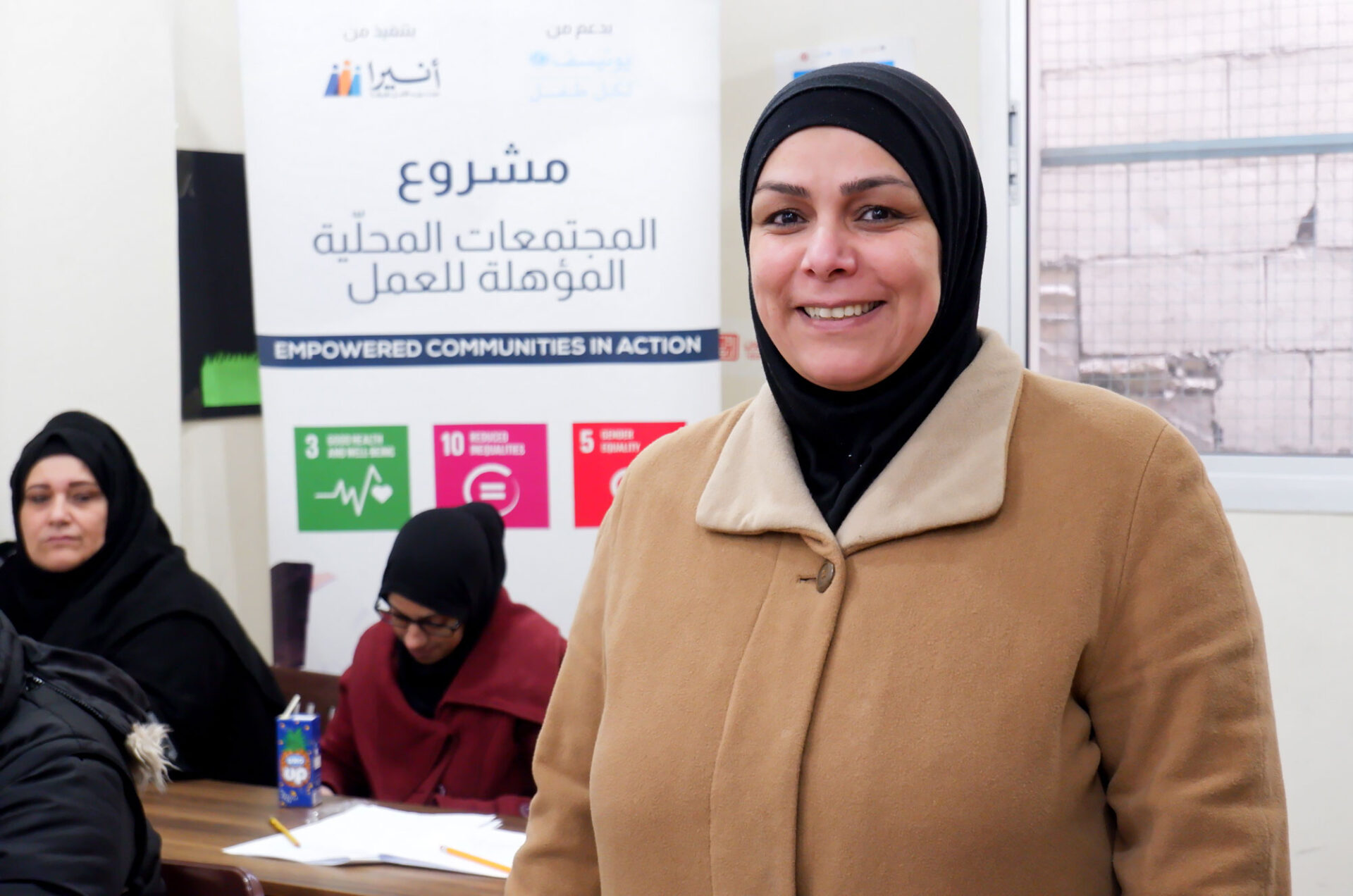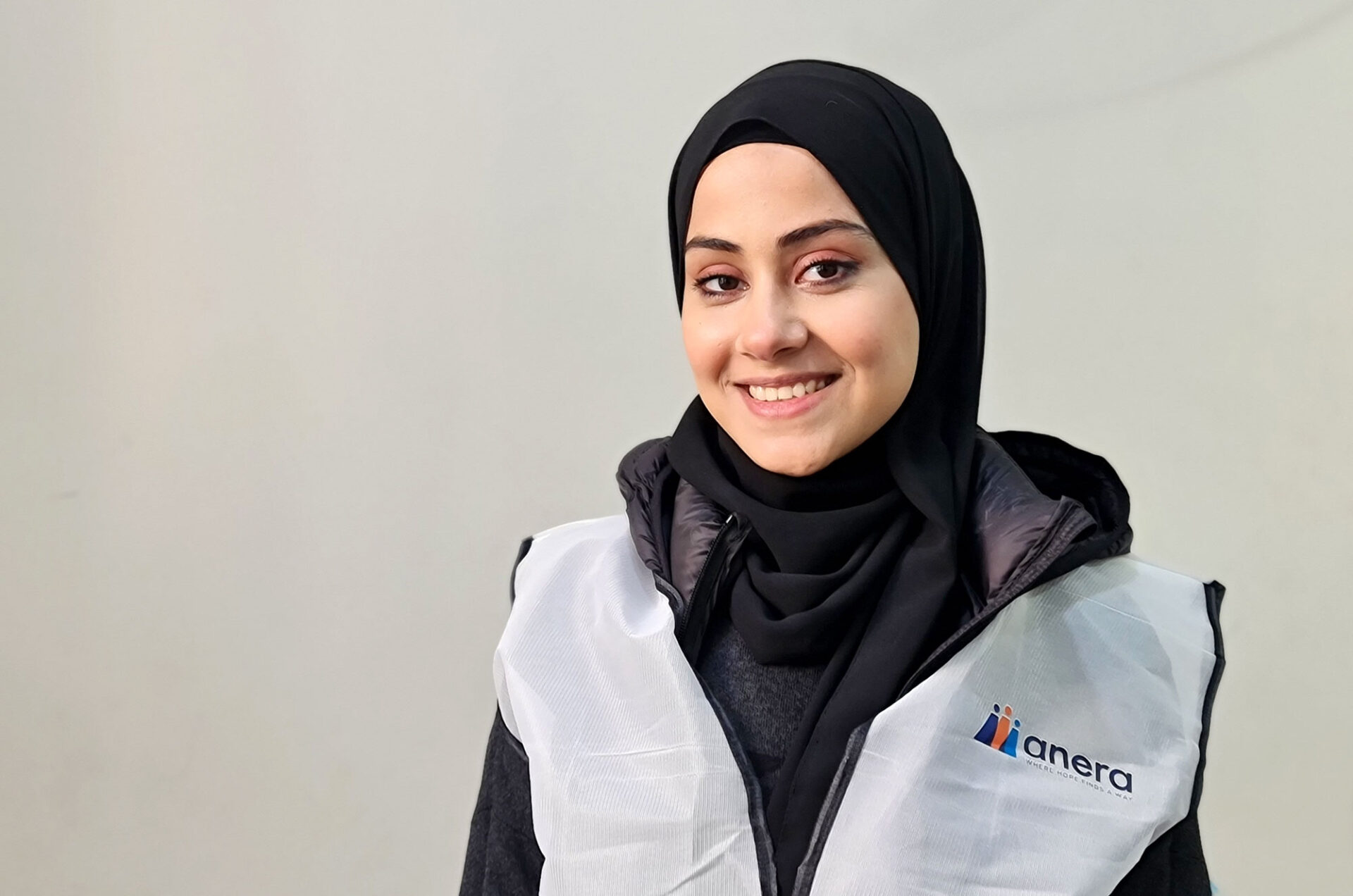Apr, 2023
Personal Health Sessions for Palestinian Refugee Women in Lebanon Camps Help Address Period Poverty
This program is supported by UNICEF
![]()
Lebanon’s economic crisis has had serious repercussions on public health. Among other impacts, it has worsened the issue of period poverty, making maintaining personal hygiene far more expensive for women as prices for pads and other products have soared. The devaluation of the Lebanese currency has increased poverty. The cost of medical services and healthcare supplies has skyrocketed, often beyond the reach of most families trying to eke out a living.
UNICEF estimates that more than half the population no longer can access some essential needs and products. For women, that means not being able to find or pay for supplies they need for their menstrual health. Recognizing the gravity of the situation, Anera teamed up with UNICEF to extend its water, sanitation and hygiene (WASH) program to deal with this issue.
Aya Hawarinah, the project officer of Anera's WASH program in Lebanon, describes the need to make materials and know-how accessible for women and girls to help them manage their menstrual cycles and personal health. In the midst of Lebanon’s worsening socioeconomic conditions, ensuring proper hygiene items are available has become a pressing priority.
"We have conducted focus group discussions with women in the camps," Aya says, "to help us understand the challenges they face so we can improve our program and provide better and more customized knowledge and appropriate health kits."
Anera, with the support of UNICEF, has implemented this program in five Palestinian refugee camps in northern and southern Lebanon, serving some 500 women and girls.
The approach is two-fold: awareness sessions for adult women in safe women community centers in the camps, and special sessions for elementary school girls, aged six to 12.
Palestinian refugee Hana attends the sessions in Beddawi Refugee Camp. The 46-year-old mother of three says girls and women of all ages must learn more about caring for their own health.
"It is crucial that participants be of varying ages, especially the younger girls, so they can learn the fundamentals in a proper, up-to-date framework rather than absorbing hearsay or myths," she says.
Hana says the Anera instructors helped to dispel misconceptions she and others had harbored and offered instead clear scientific and medical information.
“They explain it all to us in an approachable and understandable manner."


“They explain it all to us in an approachable and understandable manner."
Dina Al Khatib works with the Anera WASH team and stresses that conducting health sessions in schools is crucial, since the education curriculum does not cover enough information about the topic and teachers are often reluctant to go into it in detail.
"At school, when we reach the topic of menstrual health in biology, the teachers tries to avoid it or tip-toe around it with embarrassment."
Dina and her WASH colleagues received in-depth training before engaging with their community and facilitating the information sessions.
"I am a university graduate but when I received the training, I learned new things about myself and my health that I never stumbled on during 16 years of education!,” Dina says. “That is why what we're doing is so important, especially for young girls in schools."


"At school, when we reach the topic of menstrual health in biology, the teachers tries to avoid it or tip-toe around it with embarrassment."
Seven out of ten participants in the program have started sharing the new information they learned with their husbands, sons or siblings because it is important for them to understand what women go through and endure frequently.
Hana says, “We have to take in information, retain the facts, not the myths — but also disseminate it so others understand it too.”
Hana and her fellow participants insist that women and girls have the right to know all about their menstrual health. Yet, she says, many of them still face stigma and social exclusion during menstruation.
Al Khatib agrees. “It’s about time we break the stereotypes and taboos around this topic," she says, "and this is what Anera and UNICEF are doing. Not only do we meet the needs for menstrual hygiene awareness, but we can also support reproductive health, foster confidence and protect women’s dignity.”



